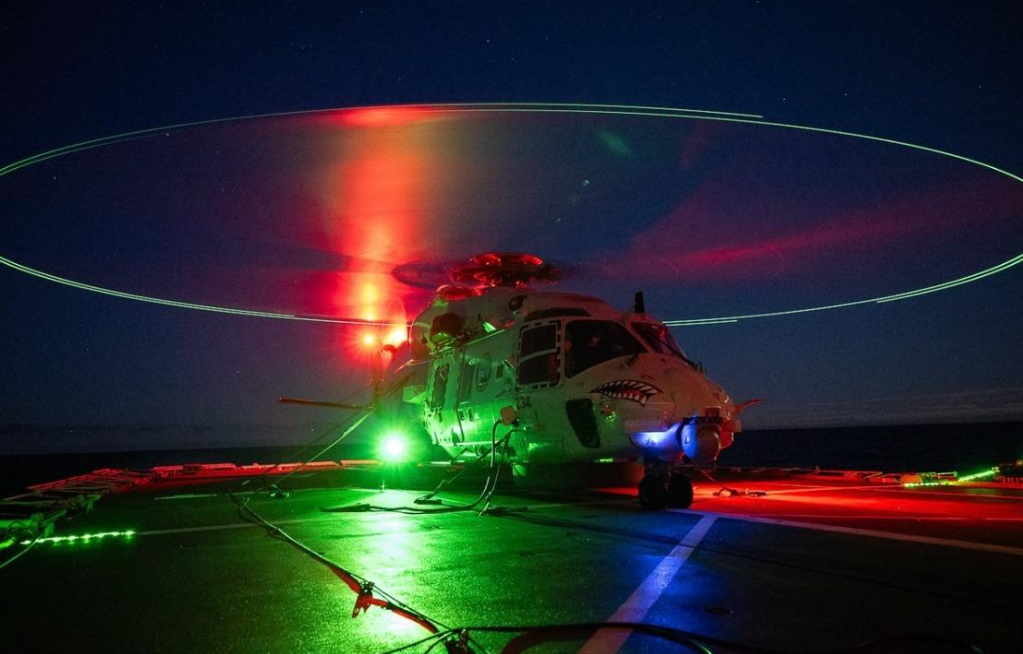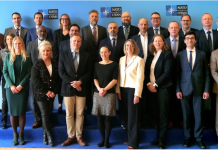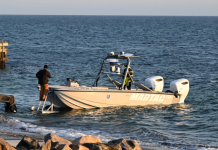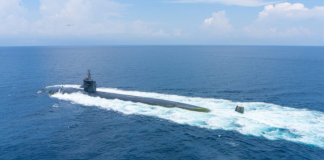The Baltic Sea – Allied forces from across NATO took part in the anti-submarine warfare (ASW) playbook activity Merlin 2024 in the Baltic Sea.
The NATO-led training activity involved naval and air assets from Belgium, Denmark, France, Germany, the Netherlands, Portugal, Norway, Sweden, the United Kingdom and the United States.
Merlin 24 featured a full spectrum of maritime assets from surface ships, submarines, and maritime patrol aircraft. The exercise enabled NATO navies to hone critical skills in anti-submarine warfare, surface warfare, and maritime patrol air manoeuvres aimed at increasing maritime domain awareness and tracking adversary submarines.
With multiple platforms available in all three domains, participating units validated their skillsets in operations at the highest level
“With multiple platforms available in all three domains, participating units validated their skillsets in operations at the highest level,” said the Commander SNMG1, Royal Danish Navy Commodore Thomas Stig Rasmussen. “Anti-submarine warfare is a difficult discipline to master, but thanks to frequent training such as Merlin 24, NATO forces maintain high-end capabilities all year round. These exercises also underscore the capacity and will to act collectively as an Alliance, ready to respond to threats from any direction.”
The benefits of Merlin 24 come from the high end training and interoperability between NATO navies. Training with real submarines combined with frequent maritime exercises strengthens interoperability between Allied navies. Maintaining NATO’s broad range of interoperable military capabilities at a high state of readiness is integral to the Alliance collective defence.
“The Baltic Sea is a challenging operational environment. The local expertise of our regional Allies facilitates success here and rehearsing command and control ensures the effective use of assets,” said Commodore Rasmussen. “Training together in Swedish waters offers Allies an important opportunity to enhance interoperability, which is the key to success in real life operations. Our new Allies in Sweden and Finland have redefined how NATO approaches maritime security in the region.”
Led by NATO’s Allied Maritime Command (MARCOM), this was the first maritime training activity under the tactical command of Task Force Baltic (CTF Baltic). The new multinational Baltic headquarters is a German national headquarters that has the capability to perform tasks for NATO.
“With Merlin 2024 our brand-new staff worked directly for the Commander, Allied Maritime Command (MARCOM) for the first time,” said Rear Admiral Stephan Haisch, Commander, Task Force Baltic. “This is another milestone for us. Merlin’s purpose includes training Allied command and control in the Baltic Sea Region. We look forward to contributing with our capabilities and experiences.”
Allied Maritime Command (MARCOM) is the central command of all NATO maritime forces and the MARCOM Commander is the primary maritime advisor to the Alliance.
Story by Public Affairs Office at MARCOM













